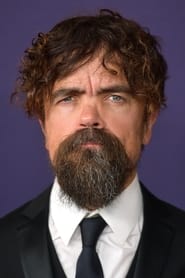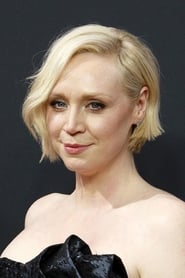
Ask Your Own Question
What is the plot?
In "The Last Season: When Winter Falls," the episode begins with a retrospective look at the final season of Game of Thrones, featuring interviews with the cast and crew. They discuss the emotional weight of the concluding chapters of the series, reflecting on the character arcs and the culmination of long-standing conflicts. The tone is somber as they acknowledge the stakes of the final battles and the fates of beloved characters.
The narrative shifts to the production of the final season, showcasing the extensive preparation that went into creating the epic battles, particularly the Battle of Winterfell. Behind-the-scenes footage reveals the challenges faced by the crew, including the harsh weather conditions and the complexity of coordinating large-scale fight scenes. The cast members express their excitement and trepidation about the climactic confrontations, emphasizing the emotional toll on their characters.
As the episode progresses, it delves into the character development throughout the series, highlighting key moments that shaped their journeys. Interviews with the actors reveal their personal connections to their roles, particularly Emilia Clarke (Daenerys Targaryen) and Kit Harington (Jon Snow), who discuss the evolution of their characters and the moral dilemmas they faced. The emotional weight of their decisions is underscored, particularly in relation to themes of loyalty, power, and sacrifice.
The focus then shifts to the production design and visual effects that brought the world of Westeros to life. The creators discuss the importance of authenticity in the set designs, costumes, and the use of CGI to create dragons and the Night King. The episode showcases the meticulous attention to detail that went into crafting the final season, with clips of the stunning landscapes and intricate battle sequences.
The episode also features discussions about the music and score, with composer Ramin Djawadi reflecting on how the music enhances the emotional impact of key scenes. The use of motifs associated with specific characters is highlighted, illustrating how the score ties together the narrative threads and elevates the viewing experience.
As the episode nears its conclusion, it revisits the final moments of the series, focusing on the aftermath of the climactic battles. The cast shares their reactions to the series finale, discussing the bittersweet nature of saying goodbye to their characters and the world they inhabited for nearly a decade. The emotional farewells are palpable, with many expressing gratitude for the opportunity to be part of such a monumental story.
The episode wraps up with a montage of memorable moments from the series, celebrating the legacy of Game of Thrones. The final scenes evoke nostalgia, leaving viewers with a sense of closure as the cast reflects on the impact of the show on their lives and the television landscape. The screen fades to black, marking the end of an era in storytelling.
What is the ending?
In the ending of "Game of Thrones," the Iron Throne is destroyed, Daenerys Targaryen is killed by Jon Snow, and Bran Stark is chosen as the new king of Westeros. Sansa Stark becomes the Queen in the North, and Arya Stark sets off on her own journey. The series concludes with a sense of new beginnings and the end of an era.
As the final episode unfolds, the atmosphere is heavy with tension and uncertainty. The remnants of the once-mighty Red Keep lie in ruins, the aftermath of Daenerys Targaryen's devastating attack on King's Landing still fresh in the minds of the survivors. The air is thick with smoke and the acrid scent of ash, a stark reminder of the destruction wrought by the dragon, Drogon.
Scene 1: The Iron Throne In the throne room, the Iron Throne, now a twisted mass of melted metal, symbolizes the end of a brutal quest for power. Daenerys stands before the remnants of her ambition, her expression a mix of triumph and sorrow. She believes she has liberated the realm, yet the cost weighs heavily on her conscience. The camera lingers on her face, capturing the flicker of doubt that crosses her features.
Scene 2: Jon Snow's Dilemma Meanwhile, Jon Snow grapples with his loyalty to Daenerys and his love for his family. He is torn between the woman he loves and the realization that she has become a tyrant. In a private moment, he confides in Tyrion Lannister, who urges him to consider the greater good. Jon's internal struggle is palpable; he knows he must act, but the thought of betraying Daenerys fills him with anguish.
Scene 3: The Confrontation In a poignant and heart-wrenching scene, Jon confronts Daenerys in the throne room. The tension is electric as they exchange words, both passionate and painful. Daenerys, filled with conviction, believes she is destined to rule and create a better world. Jon, however, sees the darkness that has taken hold of her. In a moment of desperation, he kisses her, but it quickly turns to tragedy as he plunges a dagger into her heart. Daenerys gasps, her eyes wide with shock and betrayal, before collapsing to the ground. The moment is devastating, marking the end of her reign and the culmination of Jon's internal conflict.
Scene 4: Aftermath and Mourning As Daenerys's body lies lifeless, Drogon, her loyal dragon, mourns the loss of his mother. In a powerful display of grief, he melts the Iron Throne with his fire, symbolizing the destruction of the power struggle that has consumed Westeros for so long. The throne, once a symbol of ambition and bloodshed, is now nothing but a heap of molten metal.
Scene 5: The Council of Lords In the aftermath, the lords and ladies of Westeros gather to decide the fate of the realm. Tyrion, now a prisoner, speaks passionately about the need for a new form of governance. He proposes that they choose a ruler, rather than allowing the cycle of hereditary monarchy to continue. The council ultimately agrees, and Bran Stark is chosen as the new king, a decision met with mixed reactions. Bran, now the Three-Eyed Raven, accepts the role with a calm demeanor, understanding the weight of his new responsibilities.
Scene 6: The North's Independence Sansa Stark, ever the fierce protector of her family and home, declares the North's independence. She is crowned Queen in the North, a moment of triumph for her character, who has fought tirelessly for her family's legacy. The North, with its rugged landscapes and resilient people, stands apart from the rest of Westeros, symbolizing a new beginning.
Scene 7: Arya's Journey In a final scene, Arya Stark prepares to set sail on a ship, determined to explore what lies west of Westeros. Her adventurous spirit shines through as she bids farewell to her family, embodying the freedom she has long sought. Arya's journey represents the possibility of new horizons and the breaking of old chains.
Scene 8: Jon's Fate Jon Snow, having faced the consequences of his actions, is exiled back to the Night's Watch as a compromise to maintain peace. He walks through the gates of Castle Black, a somber figure, yet there is a sense of acceptance in his stride. He finds solace in the North, where he belongs, and the final image of him riding beyond the Wall with the Free Folk hints at a future filled with hope and renewal.
The series concludes with a sense of closure, yet the fates of the characters leave room for interpretation. Each character's journey reflects the complexities of power, loyalty, and the enduring quest for identity in a world forever changed.
Is there a post-credit scene?
In the episode "The Last Season: When Winter Falls," there is no post-credit scene. The episode serves as a retrospective look at the final season of Game of Thrones, featuring behind-the-scenes footage, interviews with the cast and crew, and discussions about the themes and character arcs throughout the series. It focuses on the emotional weight of the concluding moments of the show, the challenges faced during production, and the impact of the story on both the characters and the audience. The absence of a post-credit scene emphasizes the closure of the series rather than leaving viewers with a cliffhanger or additional content.
What were the main motivations behind Daenerys Targaryen's actions in the final season?
In the final season, Daenerys Targaryen's motivations are deeply rooted in her desire for power and her belief in her destiny to rule Westeros. After losing key allies and facing betrayal, her emotional state becomes increasingly volatile. The death of Missandei and the perceived threat from Jon Snow, who is revealed to have a claim to the Iron Throne, push her towards a more ruthless approach. Her vision of a 'better world' becomes clouded by her need for vengeance against those who oppose her, culminating in her devastating decision to burn King's Landing.
How does Jon Snow's identity as Aegon Targaryen affect his relationships in the final season?
Jon Snow's revelation as Aegon Targaryen creates a significant rift in his relationships, particularly with Daenerys Targaryen and Sansa Stark. Initially, Jon struggles with the weight of his true heritage, feeling torn between his Stark upbringing and his Targaryen blood. His relationship with Daenerys becomes strained as she views his claim to the throne as a threat, leading to tension and mistrust. Meanwhile, Sansa's knowledge of Jon's identity complicates their bond, as she fears the implications of his claim on the North's loyalty and her own position.
What role does Arya Stark play in the final battle against the Night King?
In the final battle against the Night King at Winterfell, Arya Stark plays a pivotal role that showcases her growth and training as an assassin. As the battle rages on, Arya navigates through the chaos, using her agility and stealth to evade the wights. In a climactic moment, she confronts the Night King in the Godswood. With a combination of skill and bravery, she uses her Valyrian steel dagger to deliver the fatal blow, shattering the Night King and ultimately saving Westeros from the threat of eternal winter.
What are the consequences of Cersei Lannister's decisions in the final season?
Cersei Lannister's decisions in the final season, particularly her choice to align with Euron Greyjoy and her refusal to send troops to aid in the fight against the Night King, lead to dire consequences. Her underestimation of Daenerys and her reliance on the Iron Fleet ultimately backfire. As Daenerys attacks King's Landing, Cersei's plans unravel, leading to her isolation in the Red Keep. Her refusal to accept defeat culminates in her tragic end, as she dies in the arms of Jaime Lannister, crushed by the very walls she believed would protect her.
How does the relationship between Tyrion Lannister and Daenerys evolve throughout the final season?
Throughout the final season, the relationship between Tyrion Lannister and Daenerys Targaryen evolves from one of mutual respect and alliance to tension and disillusionment. Initially, Tyrion serves as Daenerys's Hand, advising her with the hope of a just rule. However, as Daenerys becomes increasingly ruthless, particularly after the destruction of King's Landing, Tyrion's concerns grow. He struggles with his loyalty to her and his moral compass, leading to a pivotal moment where he confronts her about her actions. Ultimately, Tyrion's disillusionment leads to his imprisonment and a reevaluation of his role in the unfolding events.
Is this family friendly?
"The Last Season: When Winter Falls" is a behind-the-scenes special that delves into the making of the final season of Game of Thrones. While it does not contain the graphic content typical of the series itself, it may still include elements that could be objectionable or upsetting for children or sensitive viewers.
-
Violence and Gore: There may be discussions or footage of the intense battles and violent scenes from the final season, which could include depictions of injuries or death.
-
Death and Loss: The special may touch on themes of loss and the emotional impact of character deaths, which could be distressing for younger viewers.
-
Dark Themes: The overall tone of the series is often dark and may include discussions of betrayal, power struggles, and moral ambiguity, which might be unsettling.
-
Emotional Struggles: Characters may express deep emotional pain or conflict, which could resonate strongly with sensitive viewers.
-
Mature Language: There may be instances of strong language or adult themes discussed by the cast and crew.
Overall, while the special is more focused on the production aspects, it still reflects the mature themes of the series, making it potentially unsuitable for younger audiences or those sensitive to such content.
























